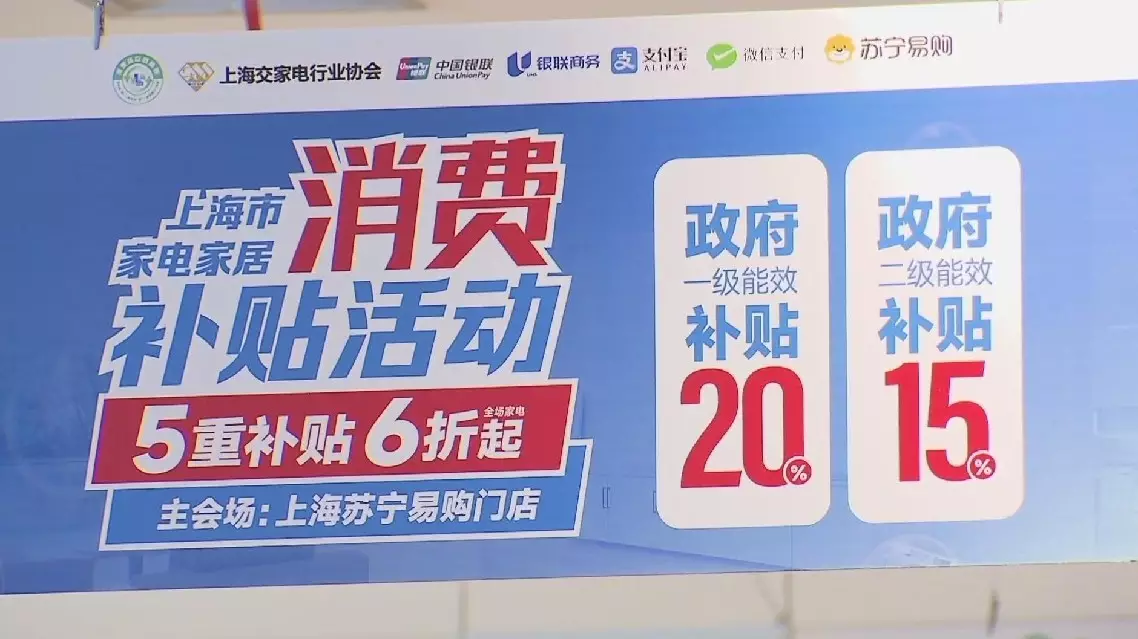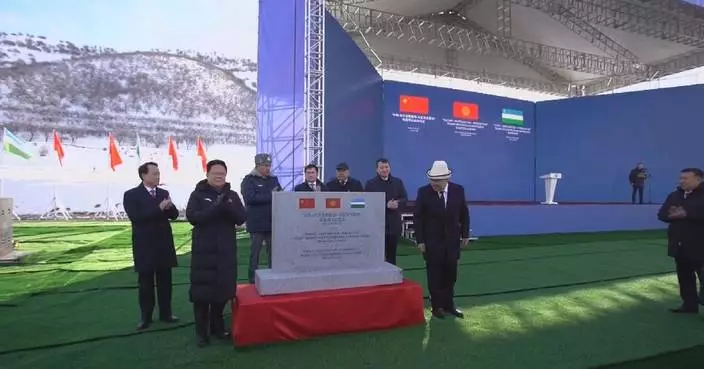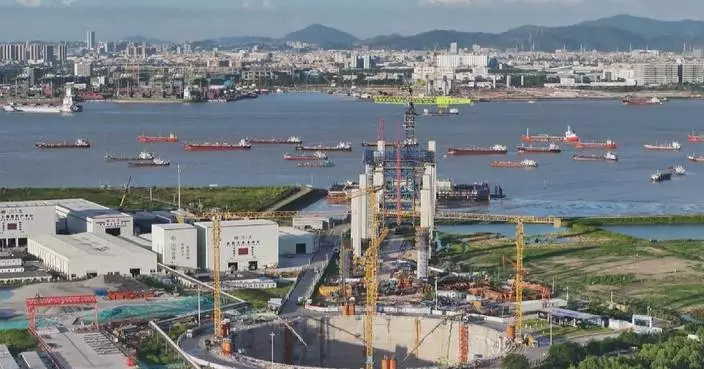The Chinese Academy of Sciences (CAS) on Sunday unveiled a plan to develop an advanced attosecond laser facility, which allows researchers to observe and control processes that occur at the atomic and subatomic levels, at a conference in Xi'an City of northwest China's Shaanxi Province.
Attosecond is the shortest unit of time that human beings have been able to master so far. An attosecond is a flash of light which is 0.000000000000000001 of a second. Attosecond lasers can be used to detect electron movements inside molecules that were previously difficult to see.
The development of the advanced attosecond laser facility will be undertaken by the Xi'an Institute of Optics and Precision Mechanics under the Chinese Academy of Sciences (CAS) in five years. Once completed, this comprehensive ultrafast electron dynamics research facility will combine attosecond lasers with their ultrashort pulse width and high spatial resolution to go deep into a series of major scientific issues in basic research.
"The large-scale attosecond scientific facility is of great significance to basic research. For example, it is highly significant to research at the electronic level, including the mechanism for electron pairing in high-temperature superconductivity, solution of the bottleneck problems in traditional computation, the ultimate efficiency of photovoltaic conversion efficacy, and so on," said Zhao Wei, a principal scientist with the institute.
At the conference, a blue paper on cutting-edge photonic technology was released. It says global photonic technology research keeps growing steadily and has multidisciplinary characteristics. It plays an increasingly important role in artificial intelligence. They are driving new progress in photonic computing and information processing technologies.
"We've also found out that photonics is a very multidisciplinary field and is broadly used in medicine, computer science, and other fields with very extensive interdisciplinary integration. Such deep interdisciplinary integration has in turn promoted our unremitting innovation and application in the field of photonics," said Wu Dengsheng, a distinguished professor of Shenzhen University.

China unveils plan to develop advanced attosecond laser facility
Governments at all levels across China are promoting consumer goods trade-ins and industrial equipment upgrade with preferential policies and subsidies, bringing about significant growth in home appliance sales and equipment production. So far this year, the trade-in policies have brought a total sale of one trillion yuan (about 137 billion U.S. dollars) nationwide, and boosted production of trade-in-related goods like new energy vehicles (NEVs) and home-use freezers.
In Shanghai, in addition to the eight categories of nationwide subsidized products, like refrigerators, television sets, and computers, the local government introduced extra subsidies for additional home appliances, as well as interior materials, furniture, elderly-friendly products, and more to meet local needs.
According to statistics, Shanghai's trade-ins of home appliances have exceeded 6.4 million times, boosting trade of the eight categories by 30 to 40 percent compared to last year's statistics, and the total sales of home appliances on all platforms exceeded 10 billion yuan (about 1.37 billion U.S. dollars).
In central China's Hubei Province, the local government is providing subsidies unlimited times for passenger vehicles trade-ins, expanding subsidized kitchen and bathroom appliances, and involving interior goods and materials to the list, benefiting consumers in over 4.5 million transactions and bringing a total sale of 50 billion yuan (about 6.8 billion U.S. dollars).
In the first three quarters, industrial equipment upgrade policies have stimulated investments in equipment and tools, featuring a 16.4 percent year-on-year increase, with food manufacturing, agricultural products processing, and metal smelting equipment production increasing by 38.1 percent, 34.6 percent, and 13.2 percent, respectively.
In addition to consumer goods, governments at all levels have been actively offering allowances and providing guidance for companies to upgrade appliances and technologies to facilitate domestic consumption "We have applied for nearly 50 million yuan (about 6.8 million U.S. dollars) funding for equipment upgrades. With active advertising and mobilization, we encouraged local advantageous companies in machinery and medicine and health to apply, and provide guidance for them on company digitalization and technology upgrade," said Yu Biao, deputy director of the Development and Reform Bureau of Xinchang County in Shaoxing City of east China's Zhejiang Province.
Companies are also benefiting from the policy, and many are pursuing expansion with government allowances.
"We have benefited from the 'one-time pre-tax deduction policy for equipment and tools under 5 million yuan (about 680,000 U.S. dollars)' and reinvested additional funds for the Phase II expansion. As a result, the annual processing capacity has increased from 80,000 tonnes to 130,000 tonnes," said Tang Kaibo, general manager of Liaoning Lvyuan Renewable Energy Development Co., Ltd.

Local governments promote trade-ins, equipment upgrade with policies, subsidies










